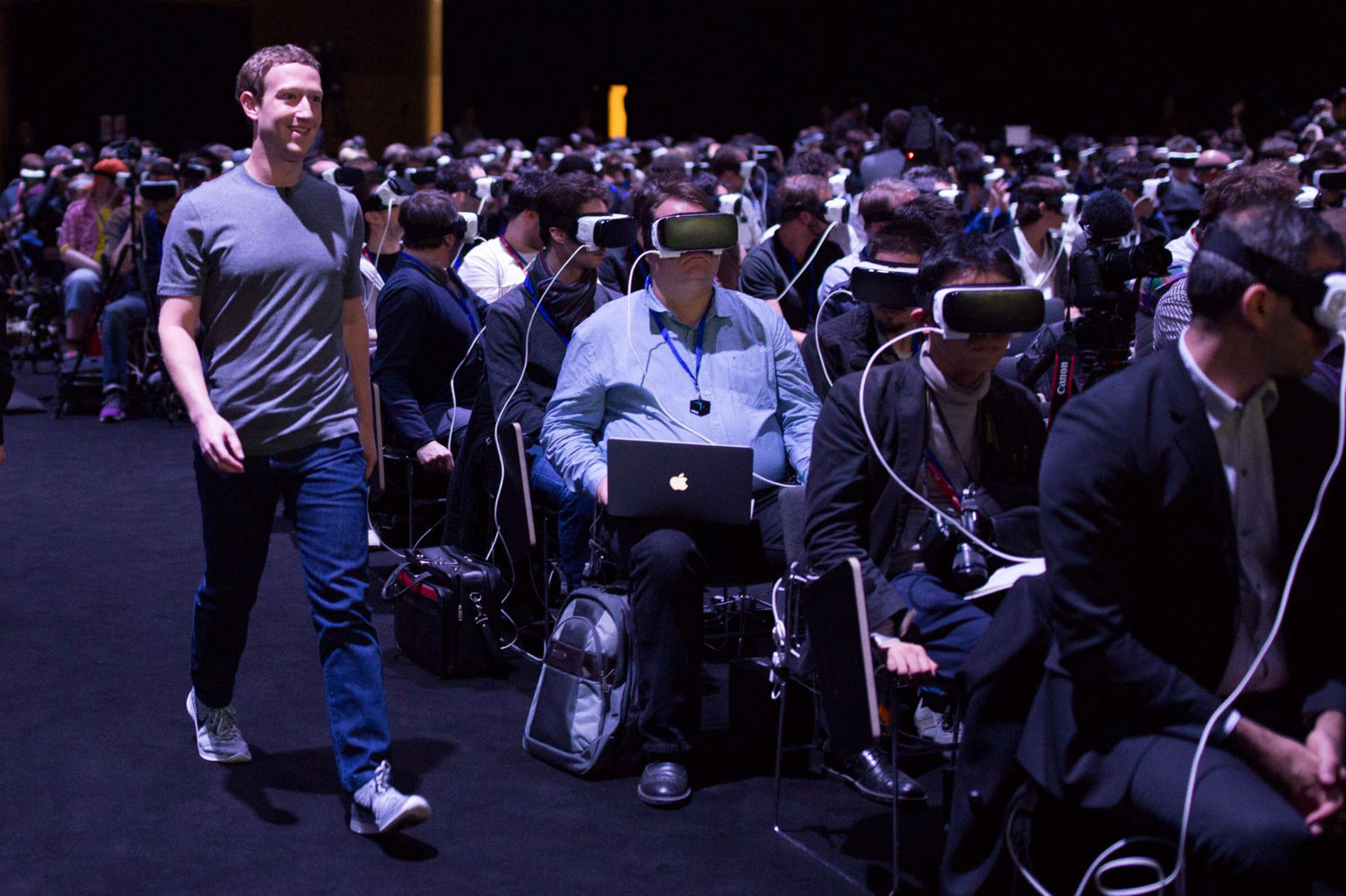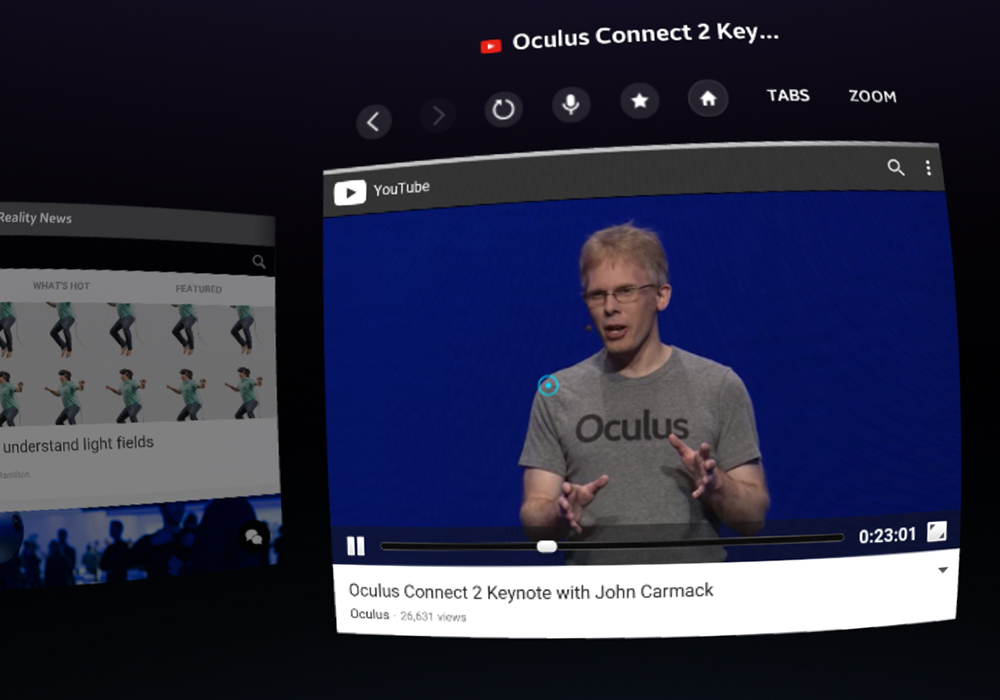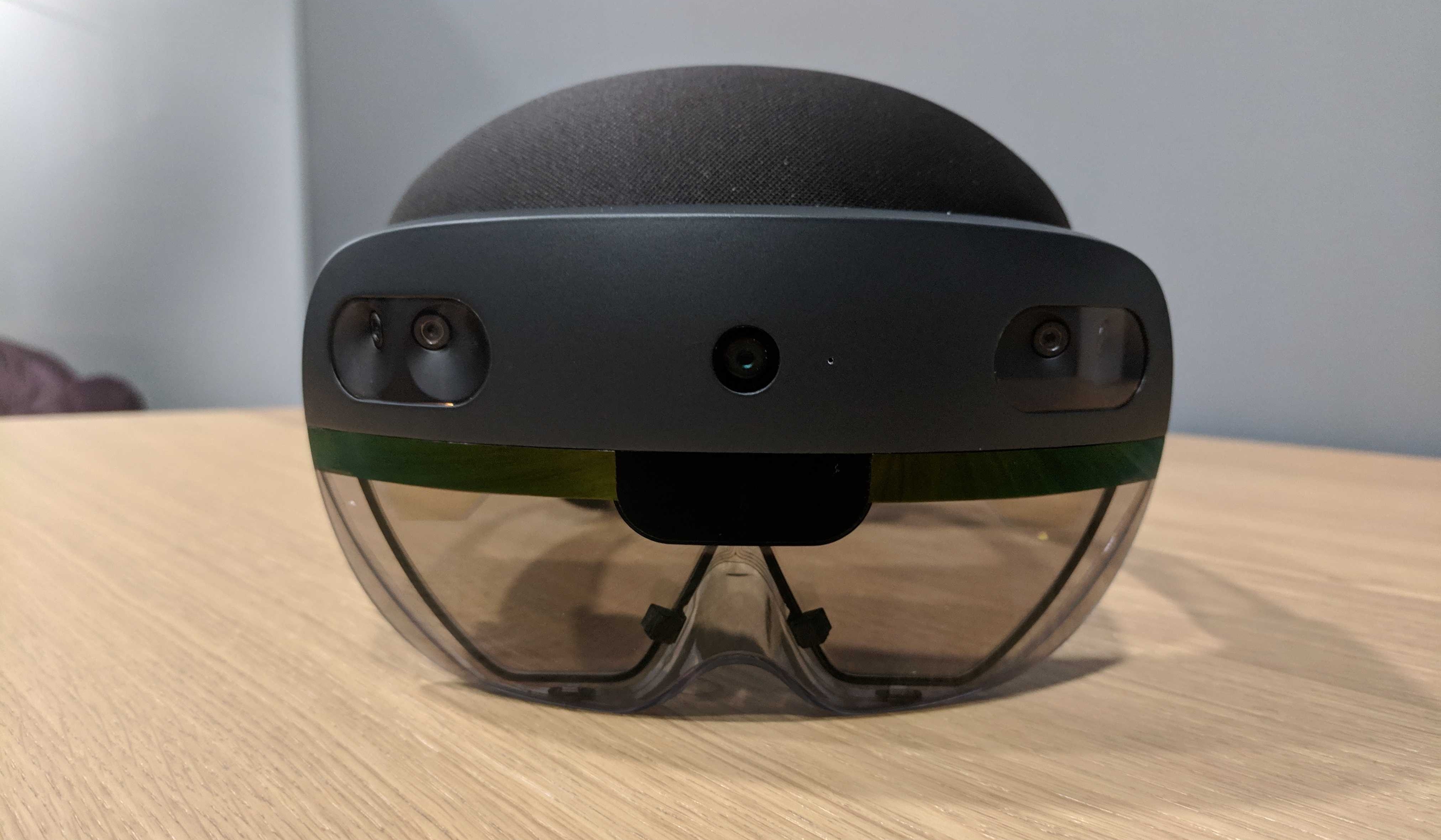Facebook’s Oculus technical guide John Carmack answered questions from podcast host Joe Rogan this week covering a range of subjects.
The more than 2-hour talk is a lot to take in and we’ve noticed various news outlets pulling out a few comments from the subjects Carmack touched upon, like whether the law should limit the length of an adult’s workday, or whether head-mounted AR is feasible short term.
We’ve listened to Carmack speak for many years now and we don’t think his comments parse out well into just a sentence or two. Instead, then, I’ve transcribed some of the most interesting segments from Rogan’s interview with Carmack.
Artificial General Intelligence
“I think that we will have — we will potentially have — clear signs of [Artificial General Intelligence] maybe as soon as a decade from now. Now lots of people disagree, the majority of scientists working on it think ‘oh its gonna be at least a few decades’, and you still have a few hold outs who say ‘oh it can’t happen at all’, but I’m a strict materialist, I think our minds are just our body in action, and there’s no reason why we can’t wind up simulating that in some way.”
Mark Zuckerberg
“Nobody can actually give them credit for it, but like Mark Zuckerberg and the Facebook leadership, they talk about the mission is to connect the world — and you know its like of course the Facebook CEO is going to be mouthing these things — but like I really legitimately do think that the Facebook leadership is doing this because they think that’s a positive thing, and I agree with them. Now I’m not a very social person, I’m an introvert, I’m a hermit mode sort of person so much of the time, but I think that this is — again — a good thing. You know, that connecting more people, giving them the opportunity to find people they wouldn’t otherwise be interacting with — people they wouldn’t have even known existed in many cases. I think we’ll come out of this looking back at this decades in the future and look back at there will be all the tragic things that happened on social media but, on net, its gonna be good.”
Work and Obsession
“I like working a 60 hour work week. I like being productive. Nowadays I have family and kids, and I usually miss that target by a bit now. But if I ever don’t hit 50 hours a week I feel I’m being a slacker — you know, I like building things, I like creating things and making forward progress, this sense of in some small way I’m helping build the future. I’m proud of the work that I do. Now in a big company like Oculus, or even Facebook is now, I probably only get to spend about 50 percent of my time actually programming, the other half is being in meetings, trying to convince people about things, pushing on strategy, doing all that type of stuff. I don’t actually manage anyone, I’d be a poor manager. At best I can lead by example and provide some kind of inspiration to follow behind, but I’ve never been good at trying to figure out how to get the best out of individual people.”
“But I do love taking a retreat where I’ll work out with my wife and family and say, ok, I’m going to spend a week or something and I’m just going to be by myself and I’m going to do nothing but programming. I’m going to largely cut myself off from the Internet, I used to do this by literally flying to another state.”
. . .
“There are people that think there literally should be laws that should prevent people from working that hard, and I always have to argue against that — where there is a power to obsession and by being able to absolutely obsess over something — and throw your life’s work — instead of work-life balance, it’s your life’s work — and everybody will point back to, ‘oh yeah that worked well for you, you were the founder of a company, you were in a position where you got to make your own decisions, but is that ok to say for the 19-year-old out of a game dev program that’s being overworked for it’? And I have to always be aware that my view into the industry is very colored by, obviously, my experiences. I never actually worked inside of one of the big — EA or Activision — studios, and it’s possible that they have some valid criticisms but I still come down on — I think its great when people throw themselves at it beyond the point of what even other people think is reasonable. They have free will. They’ve chosen to do that. And if that’s what they think is going to help get them closer to their goals, I’m not going to try to make that impossible for them. ”
Augmented Reality
“There are still fundamentally unsolved problems in display technology to do the magic thing that we would really like [from see-through augmented reality]. So you step back to saying that, well, what you saw in Quest when you saw the world through that obviously its low res, its low frame rate, its not good, but we could fix all that. You could say lets go high res, color, high refresh rate…we would call that a passthrough, rather than a see-through, augmented reality system, and we could absolutely build that technology and we could make that pretty good. But then it comes down to — what do we expect sort of a user story to be? If you had something like that, would you be wearing this boxy thing out into the world? Riding the bus with it and doing different things? We have a little bit of hard time seeing the kind of socially acceptable way that you’re running around, going about your life, with sort of a shoebox-sized thing on your head.”
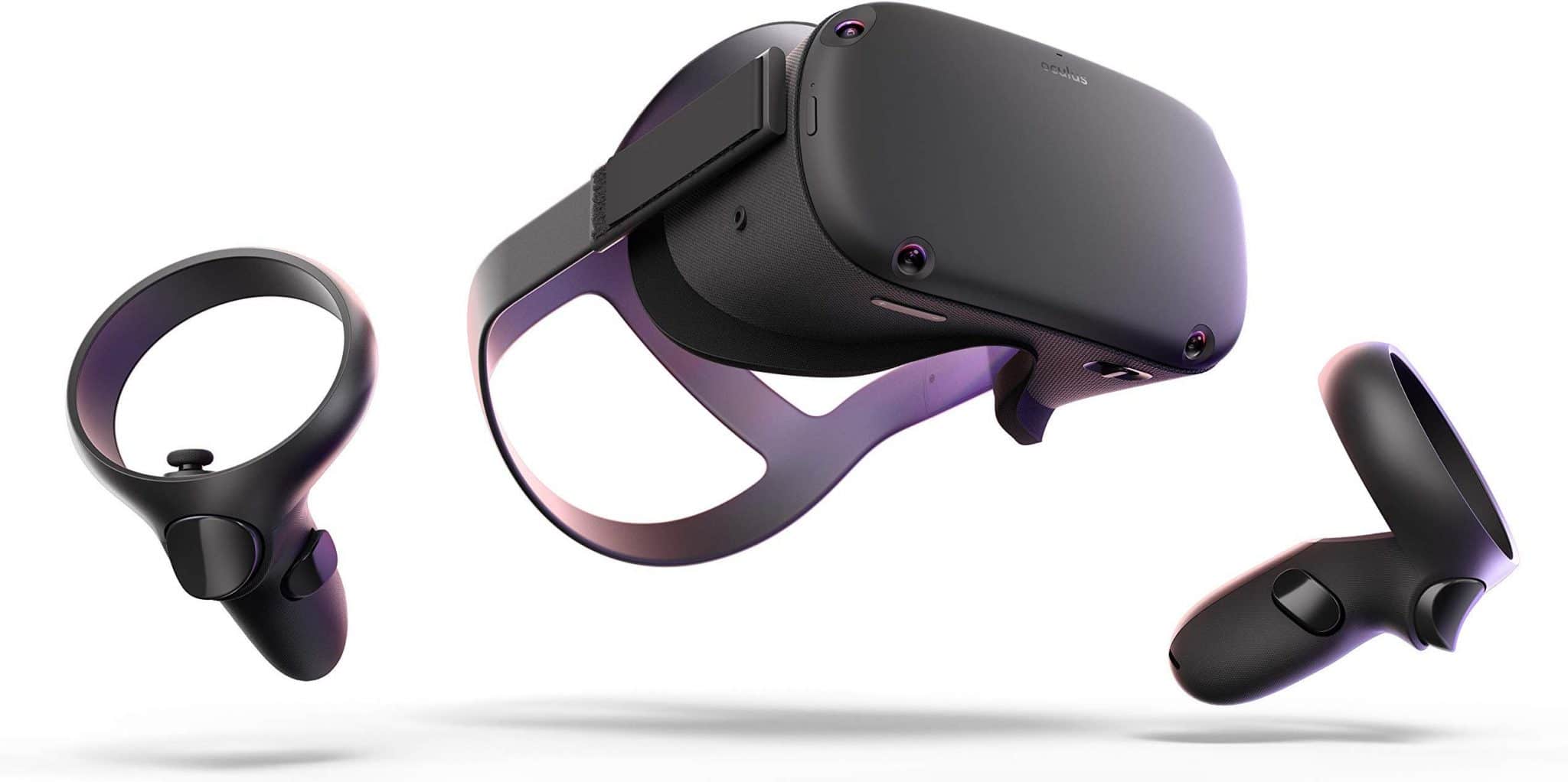 “Everybody agrees if it came down to sunglasses — everybody in the world is going to want something like that if if gives them these magical abilities and it can turn into virtual reality or augmented reality. Its an open question whether there’s an in-between layer. If we get down to the point where its something like swim goggles, or very thin sort of ski goggles, something that’s half or a quarter of the volume of what we’ve got here — would that be something that people would want to wear for long periods of the day? I lean towards no, but we haven’t built it so we don’t know yet.”
“Everybody agrees if it came down to sunglasses — everybody in the world is going to want something like that if if gives them these magical abilities and it can turn into virtual reality or augmented reality. Its an open question whether there’s an in-between layer. If we get down to the point where its something like swim goggles, or very thin sort of ski goggles, something that’s half or a quarter of the volume of what we’ve got here — would that be something that people would want to wear for long periods of the day? I lean towards no, but we haven’t built it so we don’t know yet.”
Virtual Reality And Economics
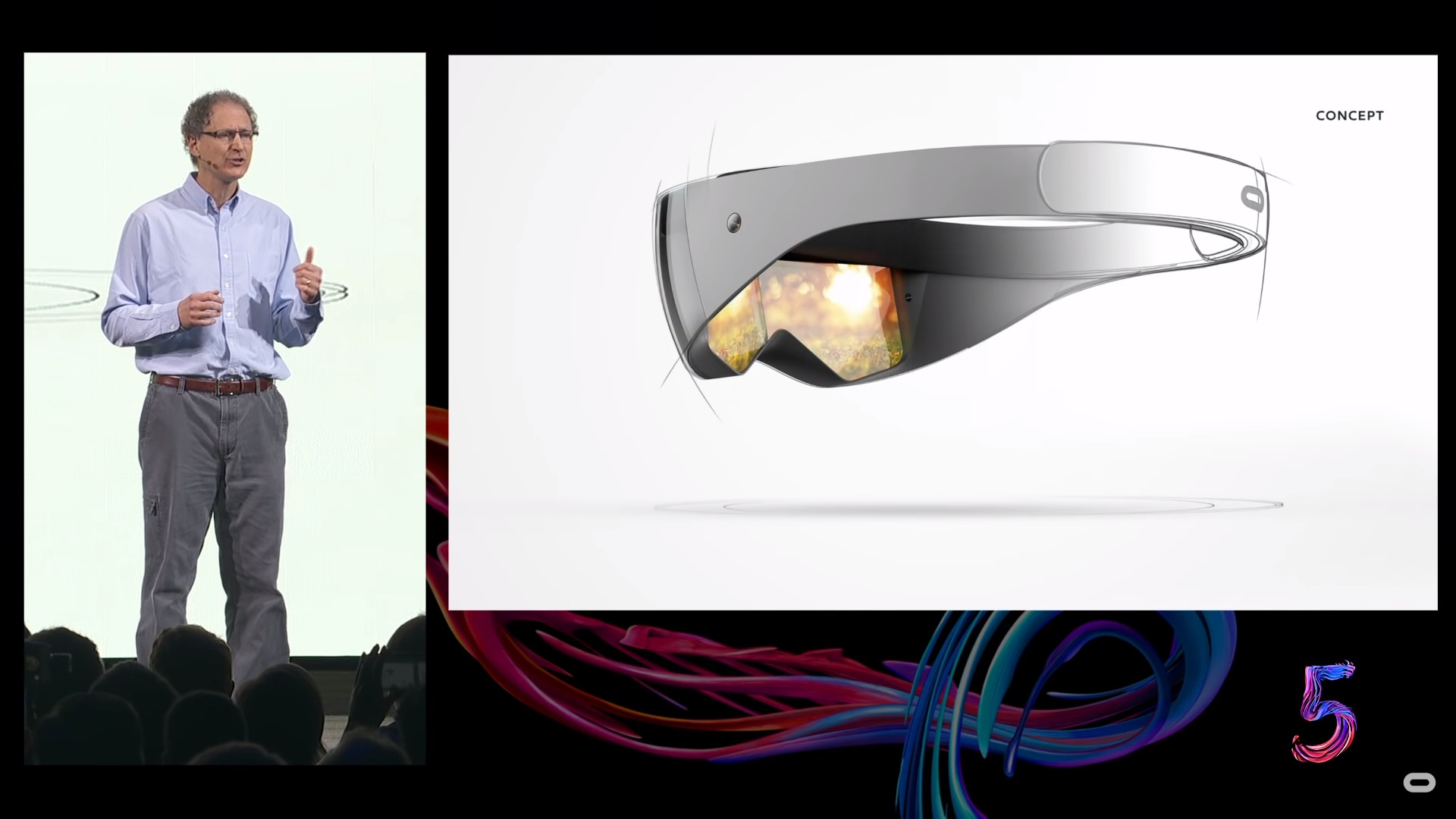
“The promise of VR is it’s to make the world as you want it. Where people do not have — it is just not possible on Earth to give everybody all that they would want. Not everybody can have Richard Branson’s private island. There’s just not enough islands in the world to give them to people. But even on a much more mundane level, not everyone can have a mansion of a house. Not everyone can even necessarily have a home theater room. And these are things that we can simulate to some degree in virtual reality. Now the simulation is not as good as the real thing. Again, if you are rich and you have your own home theater, and mansion, and private island — good for you — we may still be able to offer you the convenience of being able to instantaneously get to different places. But you’re still probably not the people that are gonna benefit most from it. But most of the people in the world aren’t in that position. Most of the people in the world live in relatively cramped quarters that are not what they would choose to be if they had unlimited resources. And the technology curves for these things — this is $400 now…these follow the price curves of phones in many ways.”
…
“We can have virtual reality devices that can get cheap enough that lots and lots of people will be able to have these. And we can make better and better software and it can be a better world in many ways. Now everybody points towards, like there’s this piece of art that goes around the internet…people say ‘oh this is the world you’re trying to build — people plugged into virtual reality that ignore the world around them. And of course the first rejoinder to that is ‘Well, is his life really better if he takes them off? And he’s in this horrible place there?’ But more concretely, like, I just came from in Dallas its 100 degrees this week there. We change the world around us in all that we do. We live in air conditioning and people nowadays don’t generally go ‘oh you’re not experiencing the world around you because of your air conditioning, you should be out there REALLY experiencing the world’, you know, that is what human beings do is we bend the world to our will and I think that a virtual reality that lets people do things that would not be possible in the world or, when it comes down to it, not economical. A lot of people react negatively to any talk about economics but it is resource allocation. You know, you have to make decisions about where things go and I think, economically, we can deliver more value to a lot of people in this virtual sense.”


